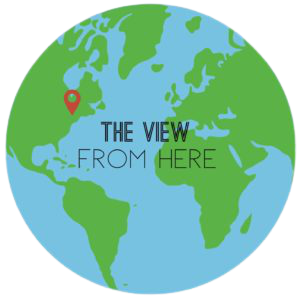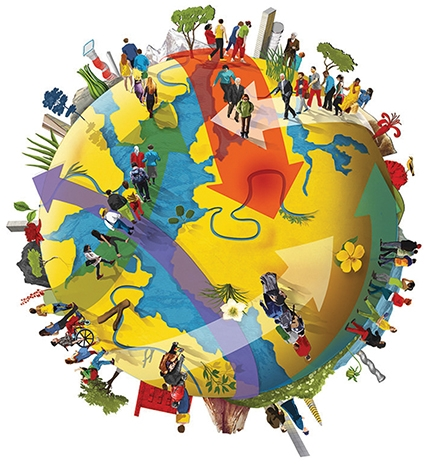The Global Impact of immigrants- their stories, ideas, and innovations (Guterres 2018).
By: Julia Li
Discrimination against immigrant children is a problem we no longer want to take remiss. Working toward a brighter future, we need to begin acting toward the solutions.
In an interview with Josué Rivera Rivera, regional Manager for the Protected Passage Program at Childfund International, we spoke about the different solutions concerning discrimination against immigrant children. He introduced an important program called Protected Passage.
Protected Passage is a regional program present within many countries. It’s also multi-organizational, meaning that the program is also partnering with Plan International and Educo.
There are three objectives of the program. Josué explains, “The first one is to increase and improve the services of local partners, which are organizations working in assisting migrants [specifically for migrant families and children] in these countries. This assistance has to deal with migrants who might be on the move, who might be waiting, or might be returning to their own countries.
The second one is to work together with governments to help them improve their knowledge and care for migrants, and at the same time, making them more responsible for the treatment that they give to migrants, depending on where they are.
And the third one has a lot to do with the communities. So we try to make communities more aware of the realities of migration. We work with communities to help them better understand undocumented migration, people who are trying to get to the US or Mexico or other countries without having the necessary paperwork… A lot of these people are in violence and are fleeing very dire situations in their countries. So we try to make communities aware that just because people migrate and they might not have documents, doesn't mean that their human rights disappear.”
Health
Protected Passage tries to help immigrant children get sufficient access to health care. According to Josué, they do this by providing health care directly or providing resources to local partners. These resources range from masks to gel, depending on the local partners. They can also be financial resources— for example, allowing immigrant families to take a COVID-19 test.
Due to violence, physical and psychological effects inflicted on the child from discrimination, Protected Passage has been trying to concentrate on cycle social support. One of the tools Protected Passage uses is called PFA, or psychological first aid.
ChildFund Alliance trains not only professionals, but also volunteers, to help immigrant children deal with their emotions, understand their emotions, and allow the emotions to make them more resilient. As Josué explains, “the thing about PFA is that it's only the first line of defence because it also helps you realize which cases need to be referred to a professional care.”
Professional care can provide more structured psychosocial support for patients. For instance, they give support not only to the immigrant children but also to the family, as stress from parents can greatly impact the mental health of immigrant children.
Politics
Protected Passage and many programs in Childfund Alliance are concerned about instances where the government tries to instill fear into immigrants when entering the country. As Josué says, “We found it as an intentional way of the previous administration to try to deter migrants for trying to go into the US.”
To prevent discrimination, governments need to develop measures to ensure access to essential services for immigrant children. Information is key in addressing and preventing xenophobia, discrimination, or stigmatization of migrant children.
Immigrant children have offered many great contributions to economic prosperity and technological development, shaping the diversity of ethnicity and culture. Yet as some governments show extreme xenophobia in discriminating against immigrant children, they are fading a colourful future.
Education, Teachers, and Schools
Education is crucial for migrant children to contribute to society as they grow older. When the education level is higher, and language proficiency increases, the child may be able to enter the mainstream of Americans quicker.
However, there are many barriers for these children to have access to good education, especially in a poor neighbourhood.
Josué says that this is a critical challenge for the government to tackle. Protected Passage does its best to keep children in school so that they are consistently involved in some sort of education. This is due to some statistics showing that the longer a kid stays without going to school, the less likely it is that they’re going to go back once they’re older.
Although some environments may obstruct full educational growth, Josué still believes that children will thrive in any way. He says that children have this “desire to do better and desire to be educated.”
Current teacher training programs are improving on those aspects of discrimination, but as Adair points out, there need to be ways to support existing teachers. This means providing teachers with culturally and linguistically diverse materials, curriculum, and professional development to maintain diversity in the classroom. One of these ways is for teachers to treat linguistic diversity not as something to prevent in the classroom, but as a strength to be valued (Carnock 2015).
ChildFund Alliance also has other programs directed toward focusing within schools and classrooms to prevent violence, promote equality, promote peace-building, and so on.
Providing for Migrant Families
Protected Passage gives many opportunities to parents of immigrant children, such as connecting them to information programs and applications, and so on. They work through local partners, which are those that are directly involved with the situation.
Migrant families can also avoid discrimination if they bond with groups of the same ethnicity. Research shows that this ethnic group attachment helps greatly. This bond can also be included as family cohesion, providing mental and emotional support.
Spreading the Word
Protected Passage sponsors a radio show, led by one of their local partners. This radio show talks about the different human rights of migrants and so on. They also share messages from migrants about the realities of how they’re living. As Josué describes, we “try to fight the rhetoric that migrants are coming to those countries to basically take away the jobs of other people or to rob others and commit crimes, because the truth is, the last thing they want to do is get into any problems with authority.”
In the end, coming to a new country is a long passage full of fear. It’s a passage that needs protection for migrant children and their families. It’s a passage around the world, bringing people to a new country, and the safety that awaits them.
Works Cited
Carnock, Janie Tankard. “How Young Children of Immigrants Face Discrimination At School.” New America, 18 September 2015, https://www.newamerica.org/education-policy/edcentral/early-discrimination/. Accessed 5 August 2021.
Guterres, António. “UN Sec Gen: Towards a New Global Compact on Migration.” GEORGIA TODAY, 15 January 2018, http://gtarchive.georgiatoday.ge/news/8775/UN-Sec-Gen:-Towards-a-New-Global-Compact-on-Migration. Accessed 11 August 2021.

